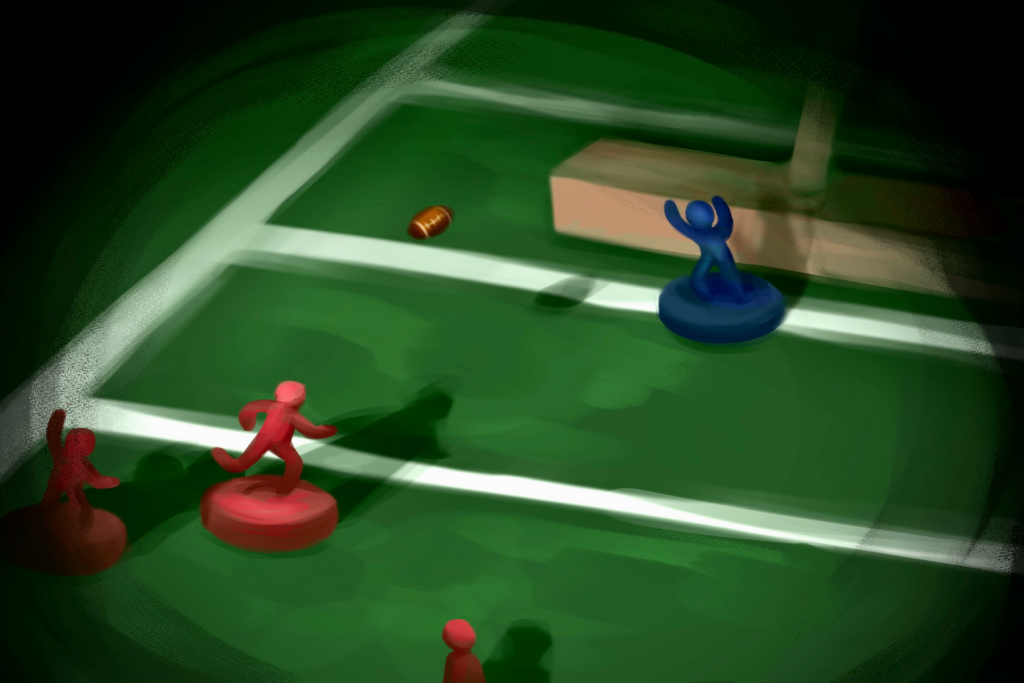According to YouGovAmerica, every Sunday during football season, 37 percent of the US population watches football, 17 percent of whom participate in the game of fantasy football.
In essence, fantasy football is a math-based game in which various teams compete parallel to real life football. Each person picks their players and acts as the manager of their own team. They gain points for statistics such as yards, touchdowns, and field goals. At the end of the week, these statistics are tallied up and the team with the most points wins. These points are added up each week until the final championship.
Although competition is a major part of fantasy football, it’s also about creating community. Taking part in a league, whether it’s made up of total strangers or close friends, is a way to immerse oneself in a sport, and be part of a unique culture built on the love of football.
Casey Alper, a Berkeley High School (BHS) junior in Academic Choice (AC), described fantasy football as not just a way to compete against friends, but also a chance to create a bond with them outside of school. “I like beating all of my friends, but the real reason I participate is I get to hang out and have fun with them,” said Alper. Due to the sheer size of BHS, it can be hard to find new friend groups. Fantasy football is special in that it allows people to come together around their passion for the sport and create new relationships. For Alper, fantasy football is a way to foster community around a mutual interest.
Liam Marder, a BHS alumnus and former quarterback of the BHS football team, acknowledged that fantasy football allowed him to engage with football in an entirely new way. “Fantasy football creates a unique way to bond with people by creating a platform for competition and engagement,” said Marder. He has also been the commissioner of a fantasy football league for several years; the league is made up of four other recent BHS alumni and their dads.
Marder explained his role of commissioner as “someone who organizes certain events such as the draft and Superbowl party.” Marder explained that “leaving for college is going to put a strain on my relationships with my friends. Keeping the fantasy football league alive will help bond us together even when we’re thousands of miles apart.” For Marder, fantasy football has helped his community stand the test of time and physical distance.
Marder is not unique. Hundreds of thousands of people around the world united by a common interest join together each year to participate in fantasy football. Bridging distances, generation gaps, and backgrounds, this unique pastime holds a space in which all feel welcome.


